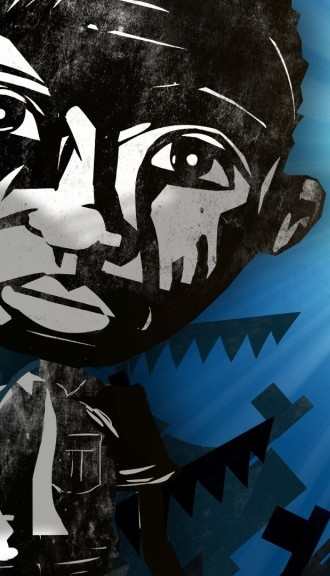It is difficult to fully articulate an idea in less than five minutes. It is such a skill that class projects are given in many Concordia courses with the exact intention of developing that ability. Precise thought, word choice and presentation are needed to correctly convey the speaker’s intention. While it is a rare feat to articulate a full-bodied idea in such a minimal amount of time, Vancouver filmmaker and journalist Jodie Martinson’s Stronghearted conveys two.
This short film, which is a splendid mix of both live-action and animation, tells part of the life of Evelyn Amony, specifically her first encounter with Joseph Kony when she was 12-years-old. Many will remember Kony as a popular Internet meme that spread across the web early last year. History will most likely remember him as the leader of Uganda’s Lord’s Resistance Army and a kidnapper of children who essentially created his own cult where he viewed himself as a kind of divine prophet. This short film provides an opportunity to gain insight into who the man Kony is beyond the Internet and the media.
What the film presents about this man, and more importantly how it is presented, provides much of the mental fuel packed into Stronghearted’s message. Protagonist Amony narrates her first ordeal with the Lord’s Resistance Army with shocking honesty and realism. Her presence is the sole part of the film that is live-action, which helps bring home the fact that this is a real story that happened to a real person. The surreal drawing of Kony goes a long way to distance him from an actual human being. At first glance, he is more boogeyman than man. Yet this is not a story about how Kony raped Amony, or of how he beat her and forced her into servitude: this is the account of how he saved her life.
This is an odd subject for one of the most demonized human beings still living on the planet. That is what makes it such an important piece of filmmaking. It is easy to forget that people and not monsters are responsible for the atrocities of humanity’s history. Stronghearted in no means defends Kony, but it provides an instance where even an “evil” man does an act of “good.” These portrayals are needed to showcase the duality that many believe exists in the human soul.
Jodie Martinson could have made this film two hours — it is a credit to her directing skill that she was able to accomplish so much in so little time.
Stronghearted is available for viewing free online at http://www.nfb.ca/film/stronghearted
